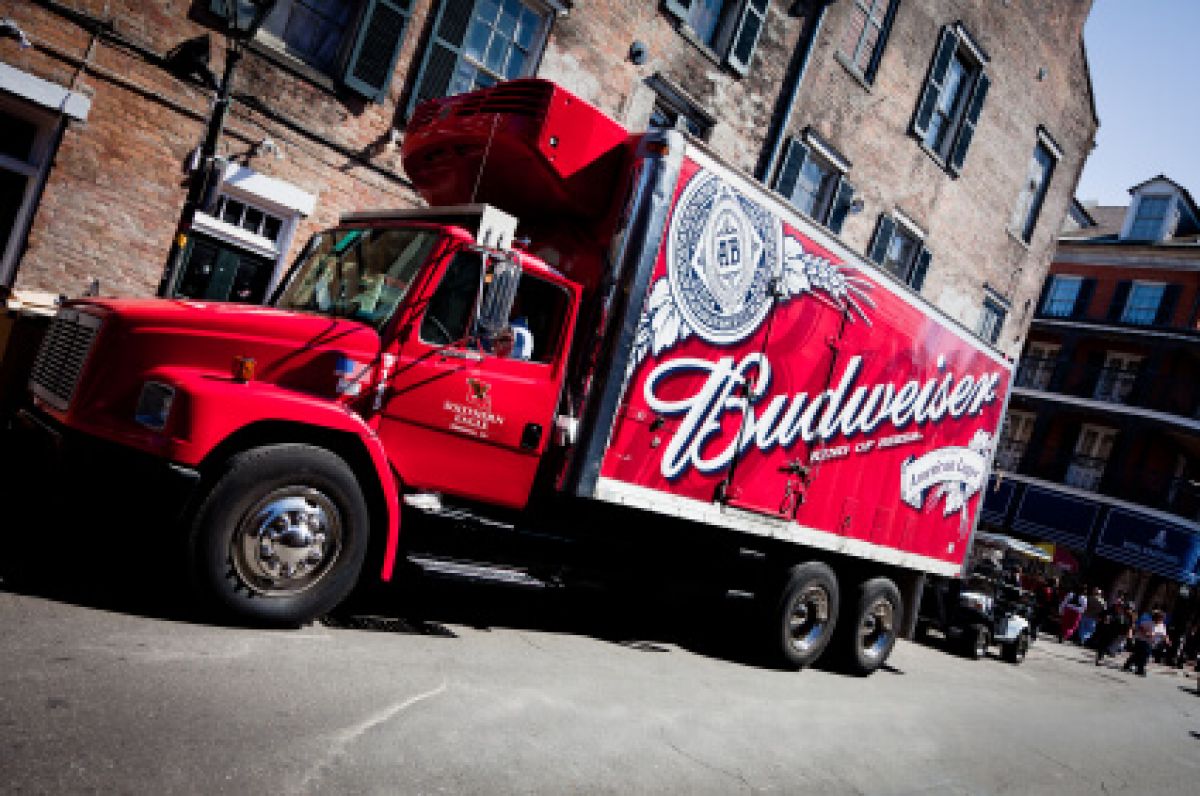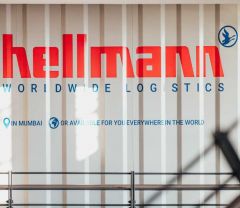Sommeliers Choice Awards 2025 Winners
5 Costs to Contain in Your Fleet-Driven Import And Distribution Business
Todd Ewing, Director of Product Marketing, Fleetmatics discusses how fleet management technology can help control in Your Fleet-Driven Import And Distribution Business.

In the recent article about strategies to reduce fuel costs and improve fleet management, I mentioned the fiercely competitive nature of the beverage import and distribution industry. With mounting pressures like increasing fuel costs and narrowing margins, owners of these fleet-driven businesses are always seeking ways to create operational efficiency without increasing costs in order to do so. Not only that, but unlike with certain products for which freshness and quality aren’t a concern, beverages are perishable products and require on-time, accurate delivery as a result. This added element of pressure is yet another reason monitoring of the distribution fleet is crucial.
In this piece, I’ll examine five costs that owners of fleet-driven import and distribution businesses need to contain, outlining how fleet management technology plays a role in managing those costs while still enabling peak-efficiency operations.
1. Fuel
According to an early-November USA Today article, “Volatile gas prices give drivers whiplash,” jumps of 20 cents per gallon or more in a single day are becoming common. This is based on an AP analysis of daily and weekly price changes at 120,000 U.S. gasoline stations tracked by GasBuddy.com. With fuel costs as unsteady as they currently are, business owners have had to reconsider how they use their vehicles on a daily basis in order to control costs.
Import and distribution businesses that rely on vehicle fleets have even more pressing concerns. Not only do they have multiple vehicles that rely on gasoline or diesel fuel to service their customers, they have an entire staff of drivers, and the responsibility to see that those drivers are making the most efficient use of their vehicles and their time. Without close supervision and sophisticated monitoring systems to control these factors, they are in danger of losing serious amounts of profits due to these unmanaged costs.
Fleet tracking can identify where in the fleet there is room for improvement. Once it’s identified where fuel is slipping through the cracks, steps can be taken to ensure fleet managers are getting the most out of their fuel spend. Fleet tracking can help reduce fuel costs in several ways, including:
• Reduce unnecessary idling
• Cease unauthorized use
• Improve routing and dispatching
One of our customers, M.L. Wismer Distributing, which has been in the beer distribution business in Texas for more than 50 years, notes that the company saves 4.5 gallons of gas per week, per vehicle. With over 60 vehicles, that adds up quickly, saving them a total of $2,835 per month on fuel alone.
2. Maintenance
It is a known fact that vehicles that receive regular maintenance run more efficiently and use less fuel than neglected vehicles. And for import and beverage distribution businesses, making deliveries can be a round-the-clock job, making for potentially serious wear-and-tear on trucks. Regular maintenance service will also increase the life expectancy of a vehicle and will reduce the chances of a vehicle breaking down, causing additional delays and expenses, and even potentially impacting a product’s freshness and quality.
A high quality fleet management system will help fleet managers to ensure their vehicles receive proper maintenance. By setting alerts for each vehicle based upon calendar time, engine-on time, or mileage, depending on the type of service needed, a high quality fleet management system will send notifications via e-mail or in the reporting suite when a vehicle is due for maintenance.
A proactive vehicle maintenance program can also reduce the chance of fleet vehicles malfunctioning on the roadways and causing serious accidents. Properly maintained vehicles help save business owners’ assets by keeping vehicles on the road to do more business and costing less money in repairs over time.
3. Routing
Since fleet management technology allows import and beverage distribution business owners and fleet managers to know the precise location of every fleet vehicle throughout the day or night, routing and dispatching can more efficiently be managed. From the time the beer leaves the brewer, for example, fleet management technology can identify exactly where the product on the truck is until it arrives at the retailer. Dispatchers can ensure vehicles take the most direct route to any delivery site and can get lost drivers back on track. The best fleet tracking solutions also provide current traffic conditions so drivers can be diverted around delays. This is especially important when the freshness of a product is at stake.
Some fleet management solutions have the ability to locate the vehicles that are closest to any job site. With this information, managers can ensure deliveries are assigned in the most efficient manner possible. In addition, fleet managers will know if drivers use the vehicles for unauthorized journeys or purposely take extended routes to delivery sites.
With proper routing management and effective dispatching, vehicles do not spend as much time traveling between drop-offs. Shorter travel times means less fuel, quicker service to customers, and better quality assurance of the product being delivered.
4. Safety and Compliance
The Department of Transportation’s Federal Motor Carrier Safety Administration (FMCSA) has a laundry list of regulations that apply to import and distribution businesses in regards to vehicle regulations, driver regulations, and company regulations. From distracted driving to Hours of Service (HOS), fleet management technology helps important and beverage distribution business owners comply with these regulations in order to not only improve safety, but to avoid costly penalties.
It’s easier said than done to keep track of a fleet-based business owner’s two most important assets: their people and their vehicles. Most standard fleet management solutions can provide accurate speed information about each vehicle tracked. But the best fleet management solutions also include alerting features that will send automatic notifications when a vehicle exceeds a set speed threshold, and allows the manager to address the situation right when it happens and notify the offending driver.
High quality fleet management systems contain a host of other tracking and reporting features designed specifically to help comply with regulatory requirements set forth by the FMCSA and improve safety on the road. With fleet management technology, managers of import and beverage distribution fleets can:
• Reduce Violations and Penalties
• Increase Driver/Vehicle Compliance
• Accurately Track and Log Required Data
• Decrease Paperwork
• Improve Time Management
• Streamline Administrative Functions
• Improve Driving Behavior
5. Improved Customer Service and Delivery Accuracy
Import and distribution businesses must ensure that the freshest product arrives in the right quantity at the right time, as requested by the customer. Fleet management technology helps these businesses respond to customer needs faster and with greater accuracy through improved dispatching. That also means more deliveries can be added per day and fleet managers can provide more accurate delivery time estimates for customers.
In regards to customer service, M.L. Wismer’s General Manager, Jim Coker, notes, “With the Multi-Location Report, I can tell the customer every vehicle that has been to their location and how long they were there. It’s a good sales tool because if someone says, ‘you’re not giving me enough attention,’ we can say, ‘well we were there 67 hours last month.’”
Todd Ewing is Director of Product Marketing for Fleetmatics, a leading global provider of fleet management solutions. To learn more, please visit www.fleetmatics.com.
Not a BTN Member yet?
Get BTN Premium membership and have full access to articles and webinars on BTN + other benefits like:
Full Access to BTN Consultants
Full Access to Buying Leads
Post Unlimited Brands
Full Access to all Articles and Webinars
Full Access to BTN Live conferences presentations and speaker sessions
Discounted rates to exhibit at major partner events and conferences
And Much More...
Your BTN membership will reduce your trial and error time: Why experiment with your branding and distribution when you can fast-track your time to success? Get 'How to do it' content which will help you improve your sales and grow your distribution. Just one article can help you make better decisions and improve your distribution strategy. Try it














.jpg)








